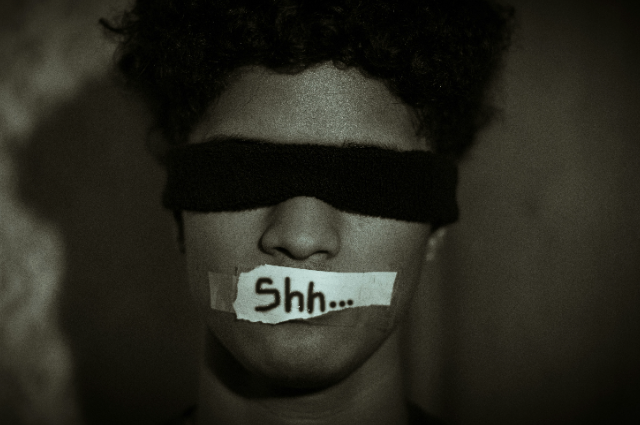
Photo by Gama. Films on Unsplash
There’s a strange quietness in the world today. Not the peaceful kind, like after a storm or in a cathedral just before the first note of a hymn—but the kind that makes you uneasy, like when someone’s trying not to say something.
And I wonder—has freedom of expression truly diminished, or have we, like Icarus in his reckless flight, flown too close to the sun and then clipped our own wings out of fear?
Let me explain.
Freedom of expression—what a lofty phrase, right? We raise it like a torch in democratic societies, enshrined in constitutions, etched into marble buildings, sung about in anthems. But if you listen closely, really closely, you’ll hear its echo growing fainter. Not because it has been stolen from us by tyrants or buried by laws, but because, perhaps, we’ve begun to fear our own voice.
I remember reading about Cassandra in Greek mythology—the prophetess cursed to speak the truth, yet never to be believed. She screamed of Troy’s downfall, her voice raw with truth, but the people covered their ears. Today, we see modern-day Cassandras everywhere: whistleblowers, truth-tellers, dissidents. Sometimes they’re dismissed. Sometimes discredited. Sometimes destroyed. And we, the chorus of this modern tragedy, often just scroll past.
Is it censorship? Certainly. But it’s more subtle now. It’s the censorship of convenience, of social algorithms, of curated outrage and curated silence. It’s when you pause before posting something that feels true—not because it’s wrong, but because it might be unpopular. It’s when you weigh your honesty against your likes, your followers, your career, your safety. That’s not a sword at your throat. That’s your own hand over your mouth.
Even Shakespeare felt this tension. In Hamlet, when Polonius tells Laertes, “Give thy thoughts no tongue,” he isn’t just being a careful father—he’s exposing a cultural truth that has existed for centuries. Silence is often seen as safe. Speaking is a risk. And yet, the very theatre of Shakespeare’s time was revolutionary because it dared to speak—through metaphor, through mad kings and jesters, through the cloaks of fiction. It danced with danger to deliver truth.
Fast forward to today. We celebrate the First Amendment, the Universal Declaration of Human Rights, Article 19. We wear our freedom like armor. But armor, if left untouched, can rust. I ask you this—when was the last time you really exercised your freedom of expression? Not just to echo what is trending, but to say something true, something inconvenient, something necessary?
We are living in a paradox. Never in history has speech been so accessible. With one tap, your words can reach a global audience. And yet, never have we been more afraid of being heard the wrong way. Cancel culture, corporate surveillance, peer judgment, online mobs—they’ve made expression feel like walking a tightrope. One misstep, and you fall. So we play it safe. We sanitize. We self-censor. And little by little, we shrink.
But this isn’t the first time humanity has faced this. Think of Galileo, who dared to whisper that the Earth moved around the Sun. Think of Sojourner Truth, who stood in halls where women and Black people weren’t meant to speak and thundered, “Ain’t I a woman?” Think of poets in dictatorships, rebels writing verses in the margins of banned books. They knew the cost of speech. They paid it. But they never bartered their voice for comfort.
So maybe the question isn’t just whether freedom of expression is being taken—but whether we are giving it away inch by inch, in the name of peace, of acceptance, of staying out of trouble.
Maybe we are the ones building the walls of silence.
And maybe, just maybe, it’s time we remember that expression—raw, thoughtful, bold—is not a luxury. It’s a duty. It’s what makes democracies thrive, what makes art timeless, what makes revolutions possible. It’s what makes us human.
I don’t want to live in a world where the only things we dare say are the things that make everyone comfortable. I want to live in a world where truth is spoken not only when it’s safe, but especially when it’s not. Where dissent is not destruction but dialogue. Where freedom of expression is not whispered in corners but shouted from rooftops—intelligently, compassionately, fearlessly.
So I ask you—not as an academic, not as a historian, not as a philosopher, but as a fellow human being—what are you afraid to say?
And is your silence worth the cost?
